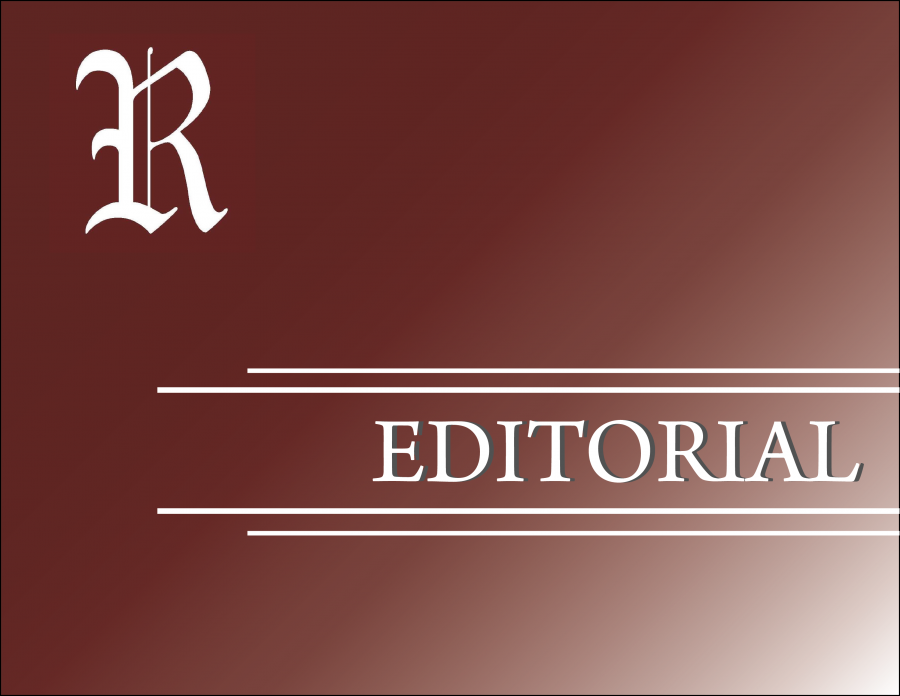Staying Informed Amid Uncertainty
On Wednesday, Feb. 5, The Fordham Ram published an editorial noting how the spread of the 2019 novel coronavirus (COVID-19) emerged as a source of dark humor for Generation Z on social media. Since then, the situation has escalated dramatically.
This week, we bring up the topic again, but this time with a far greater sense of urgency.
Fordham University has suspended face-to-face classes in light of reports of the virus, which will be substituted with online courses beginning Wednesday, March 11. All campus events are canceled until at least March 29. This decision comes after students were recalled from study abroad programs in northern Italy at the end of February. Students enrolled in the programs in Fordham’s London and Granada campuses have been given the option to return home and complete their courses online if they prefer to do so.
Being sent home from campus is a scenario none of us gave much thought to when the virus was first contained to China. However, the reality of a global spread is here, and it is as unsettling as one might imagine.
College campuses across the country are bracing for the impact of a potential outbreak, especially with spring break season in full swing. The University of Washington became the first U.S. college to close and move classes online. As of Tuesday, March 10, nearly 100 colleges in the U.S. have since canceled in-person classes.
When the announcement was emailed on Monday afternoon, students flocked to Edward’s Parade. Considering the nearly 70 degree weather and the news that classes were canceled the next day, this comes as no surprise.
However, some of us may also be experiencing anxiety about the virus. The unprecedented decision to move classes online leaves students and faculty adjusting to a new medium of education that many do not have any prior experience with. Additionally, the university’s recommendation to return home contributes to the anxiety, as many students are scrambling to find affordable means of travel or accommodations for the unexpected exit.
Many stores are running out of antibacterial products like hand sanitizer, and grocery stores are having trouble keeping the shelves stocked. The desperation has even led to price gouging in stores and online. Panic can be just as contagious as a virus. When we see those around us freaking out and buying all of these supplies, we feel a strong need to do the same.
The paranoia and conversations about the virus can be overheard everywhere, and almost every news headline is a development about the virus. Misinformation, especially on the internet, has only served to aggravate the levels of fear and anxiety in the general public.
The administration under President Donald Trump has also contributed in many ways, often providing conflicting information that has led to more confusion. When speaking to the media, the president consistently emphasizes his personal opinions on the outbreak rather than reflecting the information from experts.
He told the Fox News host Sean Hannity that the World Health Organization’s fatality rate for the virus was “false.” Considering his access to practically every organization gathering essential information about the virus, it does not make sense that he chooses to prioritize his views over the experts’.
Luckily, at Fordham, the university has made it a priority to update students with accurate information on a regular basis. Although the cancellation decision was made abruptly, the situation warrants a day-by-day evaluation.
It is incredibly difficult to mitigate anxiety about such an uncertain situation. It is hard not to feel overwhelmed when so many of the things in life we take for granted are being eliminated or changed. The suspension of face-to-face instruction at Fordham certainly exemplifies this.
At The Fordham Ram, we encourage the entire campus community to diligently follow all the precautions advised by the university. With these precautions, you can help to keep both yourself and those around you in good health. Fordham University’s Counseling and Psychological Services have provided recommendations for managing distress amid the outbreak, and we encourage everyone to read and utilize them if necessary.
Given the evolving nature of the situation, the lack of information can be frustrating. While we do not know what may lie ahead, the Ram remains committed to updating the Fordham community as best we can. Although, unfortunately, we will not be printing on paper for the next three weeks following university protocol, we will continue to share articles on our website.











































































































































































































